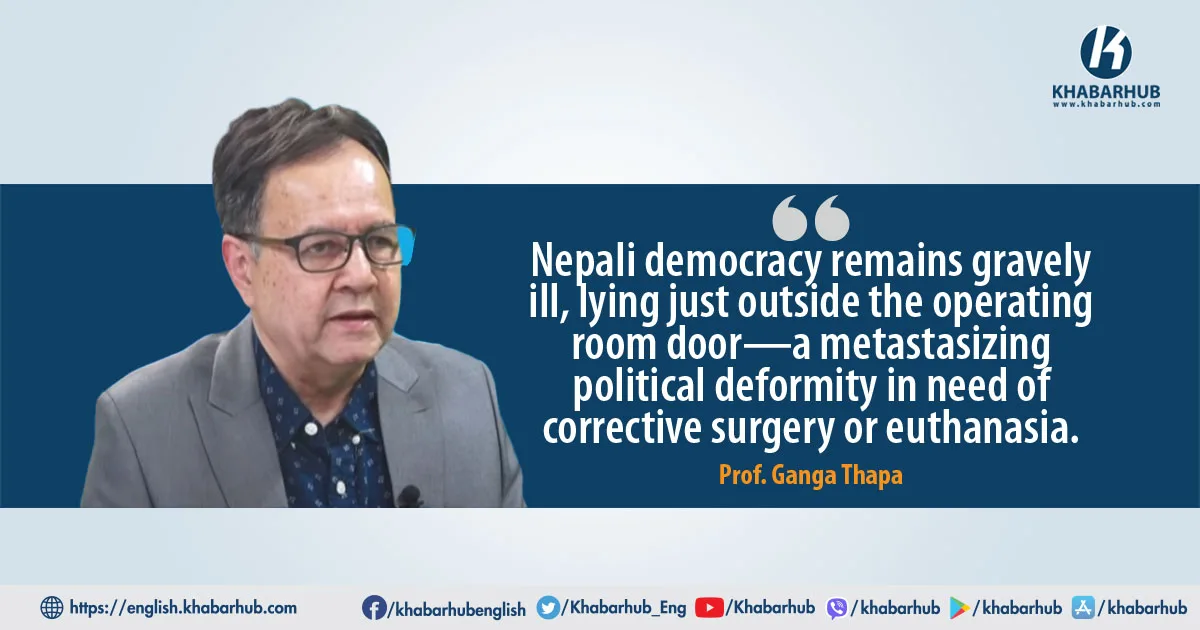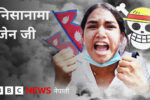Undeniably, the treacherous and venal political figures—Dahal, Oli, and Deuba (DOD)—have engaged in a litany of lies, deceit, and dirty tactics, creating problems both domestic and foreign.
Regrettably, the real culprits who have corrupted their minds are their sycophants, who consider their leaders’ every word sacred.
These followers exert decisive influence in the party’s decision-making process, posing significant obstacles to the institutional development of Nepalese democracy.
We must confess that despite democracy coming to Nepal in 1990, the expected development did not occur, and successive governments failed to align with the vision of building a new Nepal—a democratic, inclusive nation with sustainable growth.
Before the Maoists arrived on the political scene, Nepal’s democracy already faced challenges due to abuses and corruption within well-known parties like the NC and UML. Parliament was routinely misled.
Nevertheless, the Maoists’ approach is disdainful, treating citizens as if they were morons.
Personal attacks on each other are common, creating intolerable social and political conditions that weaken the moral fabric and exacerbate internal problems.
Their deliberate contempt for democracy is evident as they cynically double down and dismiss it at every opportunity, even winking at their followers.
Interestingly, major parties—especially the NC, UML, and Maoists—advocate different notions of the best political means in their conception of democracy and other important issues.
However, they often seem to share the same end goal: state capture, fraudulently taking or misappropriating state funds for private gain.
This is the ultimate dream of DOD, commonly referred to in Nepal as political dinosaurs or sociopaths.
Nepali democracy remains gravely ill, lying just outside the operating room door—a metastasizing political deformity in need of corrective surgery or euthanasia.
The collusion of political parties and the political system, which began with fervent hope, now serves the unfettered will of politically bankrupt leadership. This contradiction remains unaddressed by the Republic of Nepal.
A curious case of Nepal’s federal democratic republic is that it remains captive to DOD’s plutocratic rule. While this truth holds, it is only half of the story.
Most shamefully, these individuals have nothing to do with the rule of law, practical and moral discipline, or the value of genuine freedom.
Instead of fostering a liberal democracy, they misuse power to corrupt themselves and those around them.
Their actions are selfish, unnatural, perhaps even sinful, and exhibit radical state control.
Personal attacks on each other are common, creating intolerable social and political conditions that weaken the moral fabric and exacerbate internal problems.
This perspective might seem radical, but we firmly believe it is not a radical or irresponsible statement.
It’s intriguing to observe how a once assertive and authoritarian political leader transforms into a more conciliatory figure governing a population of one and a half billion citizens.
Furthermore, Indian voters recently sent a clear message to Narendra Modi and his right-wing BJP.
Despite being the prime minister of the largest democracy, Modi seldom engaged in discussions on matters of common interest with neighboring countries.
For instance, in the case of Nepal, he not only imposed an economic embargo but also attempted to block the constituent assembly’s drafting of a written constitution in 2015.
This lack of virtuous ethics and deliberation hindered meaningful contributions toward securing peace and happiness in the South Asian region during his ten-year rule.
It’s intriguing to observe how a once assertive and authoritarian political leader transforms into a more conciliatory figure governing a population of one and a half billion citizens.
The coalition politics of India, however, comes as a relief for India’s neighbors.
(Views expressed in this opinion are the writer’s and do not necessarily reflect the editorial stance of Khabarhub)









Comment